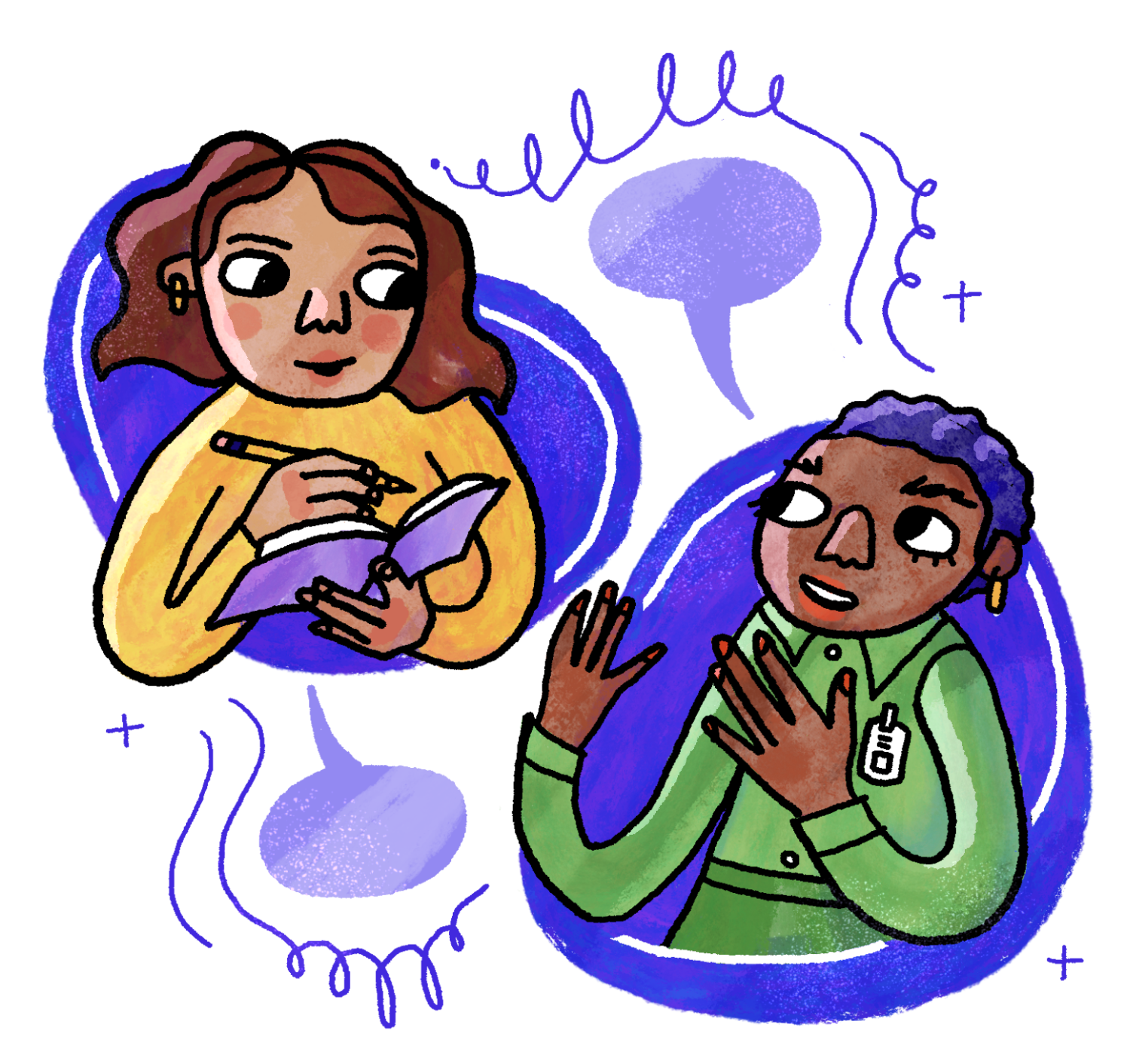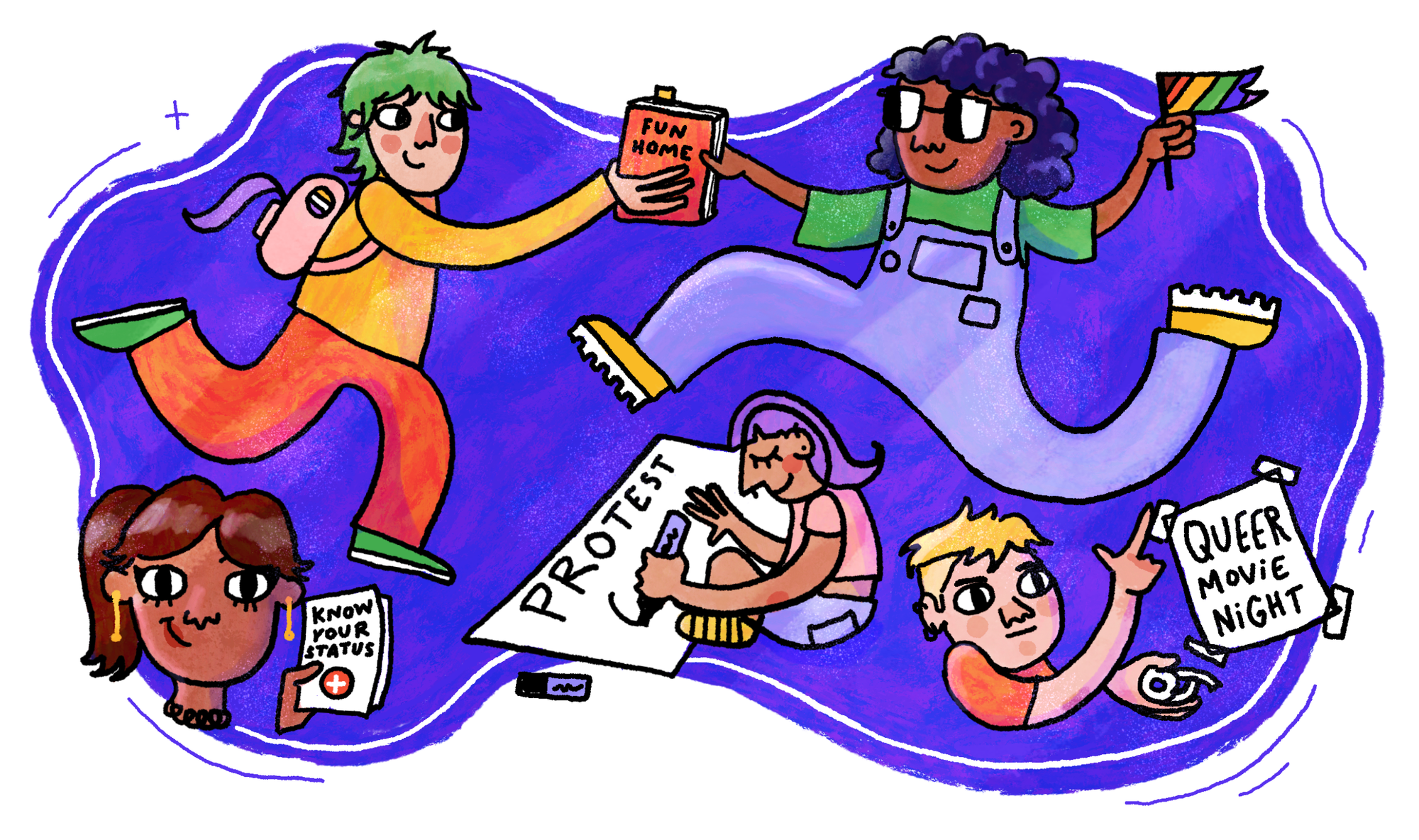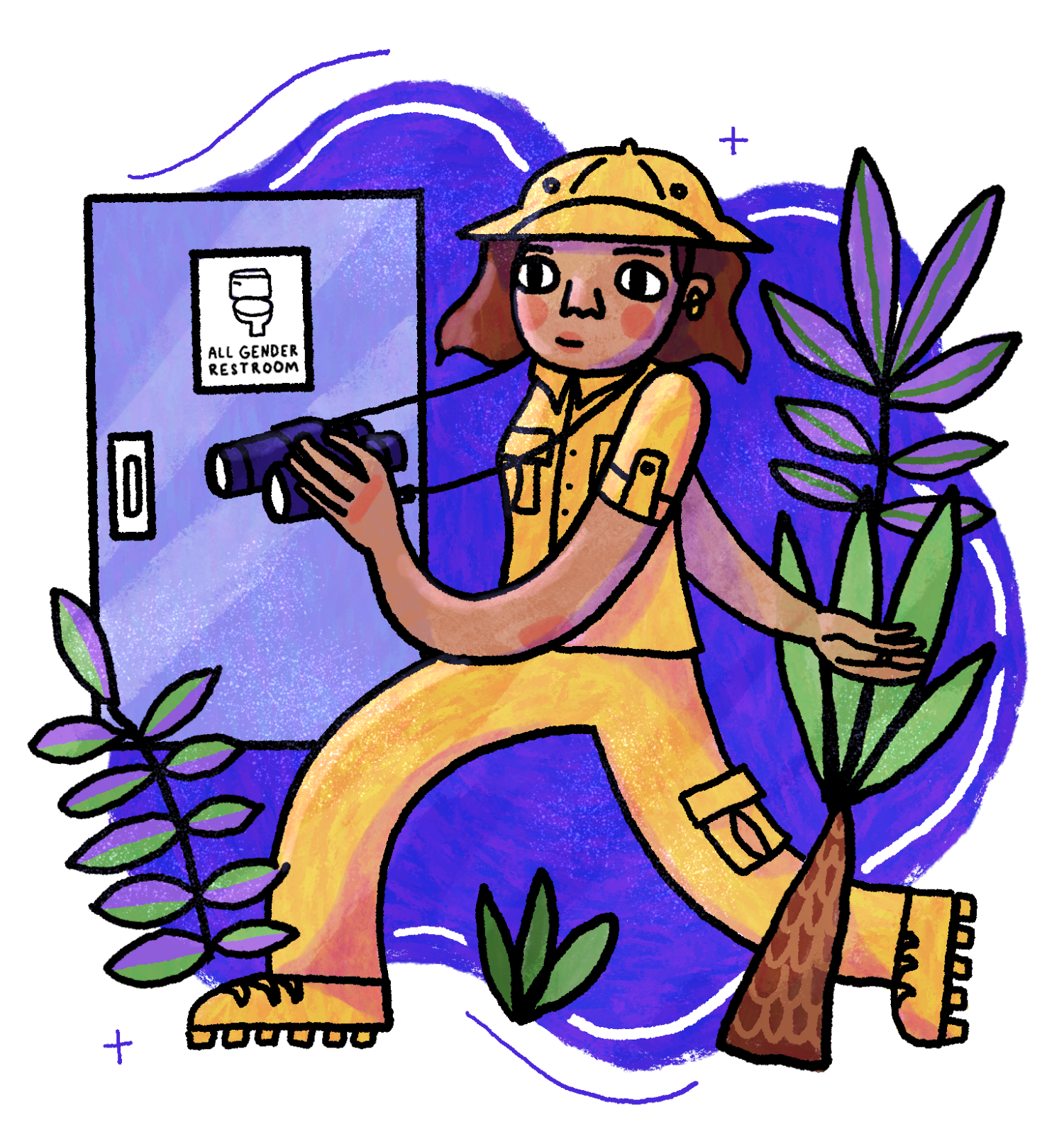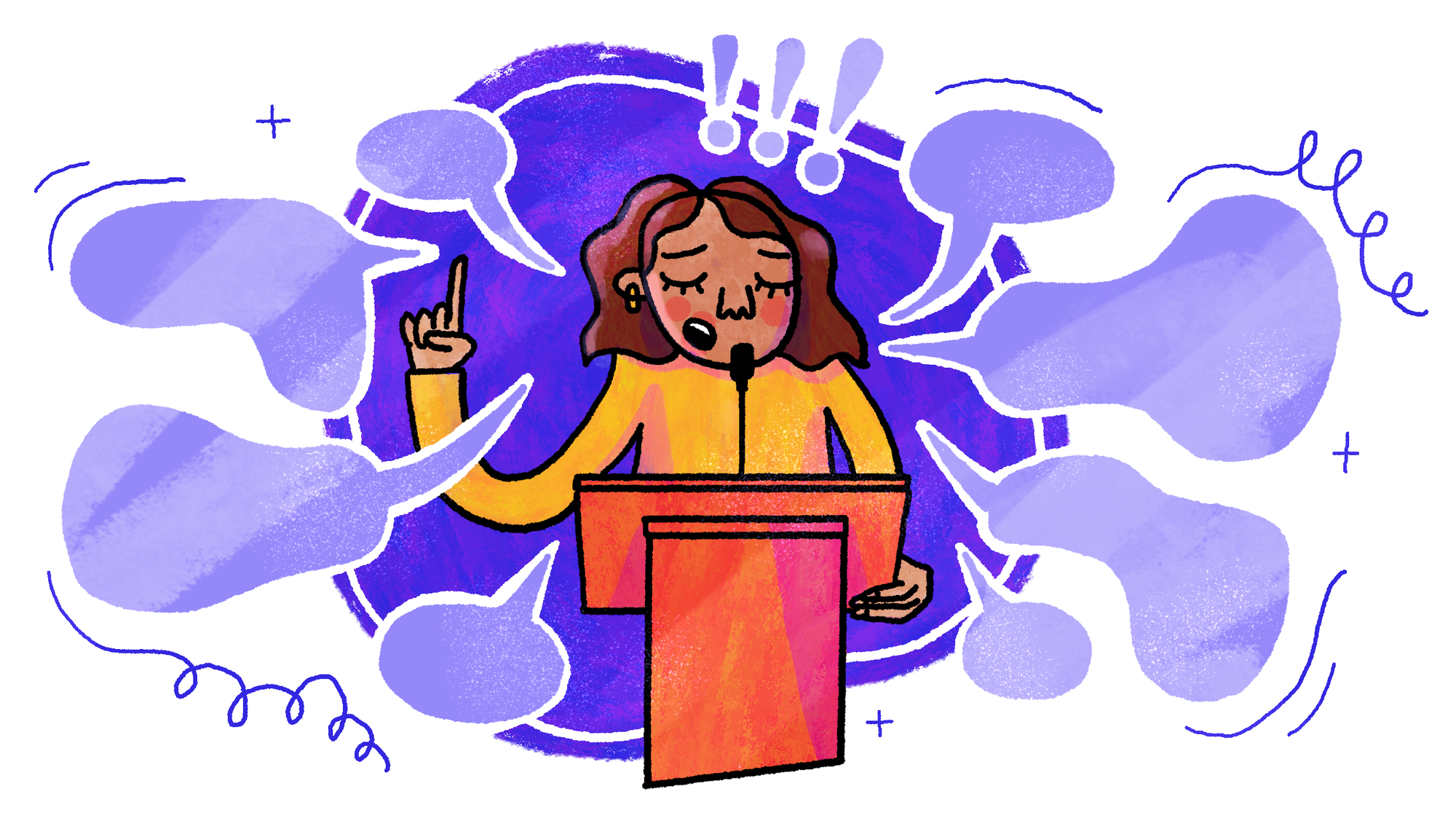WATCH: How poetry brought Phoenix's queer community together
The group thems. started out as a weekend market and has since exploded by using poetry and other art to build up the community.
More parents are looking to find a safe space for their children to go to school. We did some of the legwork for you.

Targeting LGBTQ+ people has become a common political tool used by conservative politicians. With trans people’s existence challenged and the queer communities’ belonging in American society questioned by legislators, the stakes for queer kids who attend public schools are high.
Conservative legislators in Arizona have passed more than a dozen bills targeting trans children and gender nonconforming kids in the past few years. Most have met with a veto this past legislative session from Arizona’s Democratic governor. But regardless, the bills have thrust Arizona’s trans students into the spotlight unwillingly.
Media stories capture the fears of violence at school for trans students. A trans high school freshman in Pittsburgh suffered a concussion from another student in a women’s restroom in 2021. Another trans high school student in Nova Scotia, Canada was assaulted on camera this year. A transgender high school student was also assaulted at school in the small city of Kalama, Washington.
As a result, many local parents and guardians have newly become advocates in their children’s schools and, in some cases, switched schools or even districts to make sure their children’s safety can be assured.
While many schools promise to keep all students—including queer students—safe, there are tools parents and guardians can use to help make sure they are sending their child to a supportive school. LOOKOUT asked a group of education experts, leaders, and advocates—along with Arizona students themselves—what parents and their families need to take into consideration as they choose a school that is safe and supportive for their child.
“It’s really hard to know everything by yourself,” said Tami Staas, a Mesa Unified School District teacher and parent of a trans child who graduated high school in 2016 and executive director of the Arizona Trans Youth Parent Organization (AZTYPO). “In the beginning, I was afraid to ask.”
Here are some tips to help parents and guardians get started in assessing whether their school is a good fit.
Even as the Arizona legislature seeks to roll back bathroom or sports team access for trans students, federal law ensures some clear protections.
As parents and guardians embark on their initial conversations with school officials, advocates recommend getting familiar with four federal laws. .
They include:
Looking for specific school districts to have specific and clearly stated policies in place, rather than just guidelines, is key, according to advocates. These policies would ideally include sexual orientation and gender expression on a list of protected categories and groups.
Having gender and sexual identity-related protections on the books means that it doesn't depend on one teacher or one staff member having an accepting attitude—the protections are on paper.
Without that, “if somebody leaves, if somebody moves on, there is a continuance of care,” says Mesa teacher Staas. “It also gives parents that legal leg to stand on.”
For example, if a school district governing board does adopt a policy limiting the access of LGBTQ students to certain supports, or an anti-trans definition of gender, it doesn’t change the underlying federal protections that students have.

School leaders have a responsibility to make sure that every student has a safe and positive experience, including LGBTQ+ students, say parents and advocates.
They suggest setting up a meeting with a school principal, counselor and any relevant staff before their student starts at a new school. The goal, though, should be to speak with the most senior person on the campus.
Families should expect school leaders to prioritize safety and privacy, said Paul Bixler, a trans woman and Liberty Elementary School District governing board member.
“If there is a protective, positive attitude toward student use in something as simple as a restroom, that will flow into everything else,” Bixler said.
Ideally, families create a gender support plan with the administration to cover a student’s preferred name and pronouns, bathroom use and other areas where their gender identity may intersect with their experience at school.
[See tips for creating a school transition plan from the Human Rights Campaign Foundation here. An anti-bullying professional development training can be found here. ]
In one example, Lizette Trujillo, a Tucson parent and a member of the Human Rights Campaign Parents for Transgender Equality Council, wrote her son’s school a letter stating her expectations for how her son would be treated.
“People will treat our children the way we do - so we have to set the tone that is loving and supportive of who they are,” Trujillo, who has advocated at the school board and state legislative level, said. “We want to make it the expectation, and not the exception.”
If a student is not yet ready to publicly share their gender identity, families don’t have to disclose to school officials that a student is trans.
For cases in which an administration appears reluctant to support the safety and comfort of an LGBTQ+ student, families can always escalate their concern to the Arizona Department of Education, the federal Office of Civil Rights, or the U.S. Department of Education.

Student clubs can be a helpful way for young people to learn social skills and make connections beyond academics. A school that has a Gender and Sexuality Alliance, or GSA, formerly known as a Gay-Straight Alliance, can signal a supportive environment for LGBTQ+ students.
Students with access to a GSA are less likely to hear homophobic slurs, or feel unsafe regarding their sexual orientation and gender expression, according to GLSEN’s 2021 survey on LGBTQ student experiences in school.
Sometimes those clubs are listed on a school’s website, or can be found through a conversation with an administrator.
At the same time, guardians should ask about whether there are clubs that may make LGBTQ+ students feel unsafe, such as Turning Point USA, which has had an increased presence on high school campuses and has been tied to physical violence against queer people.

You’ve spoken to the principal, researched school clubs and talked to other parents. Now, it’s time to see what the school community is like outside of formalized meetings. families should request a school visit to get a sense of the environment among students, parents and school support workers suggest.
On the tour, families can see how far a gender neutral bathroom option is from the lunch room or classrooms, how rowdy passing periods can become and what the presence of school security guards looks like during lunch periods or at the end of the school day.
They can also keep an eye out for subtle visual representations of support for queer and gender non-conforming students—rainbow flags, trans pride badges, to name a few—as well as other signs that the school is welcoming to different personal and cultural identities.
“You’re studying the culture there,” said Jaxinta Shaffer, a certified school social worker, adding that your work should be “almost as an anthropologist.”

To Shaffer, school board meetings have become spaces that have solicited particularly harmful discussions around LGBTQ+ people. She said that while it is important to highlight the struggles that LGBTQ+ students face—high anxiety, depression or suicidal ideation—meetings should also be used to highlight positive parts of that community.
They can also send a message to a listening student who may not be getting positive reinforcement from an adult in their school environment. “That sends a message not only to the governing board members… but for a child that might be listening and might not have an adult or guardian in those spaces,” Shaffer said. “It’s a powerful, recorded message. That’s how we support each other… knowing that somebody else has done it on our behalf is just tremendous.”
After a student joins a school community, having parents continue to speak out publicly about their support for LGBTQ+-friendly policies is helpful, said advocates.
It is important to note that speaking at a school board meeting means your name goes into public record.
“That is a very public form of advocacy,” said Sean Nonnemacher, Arizona policy fellow for the national education advocacy group GLSEN. (Nonnemacher is a paid LOOKOUT Community Ambassador. To learn more about what that means, click here.)
For parents or guardians who are not yet comfortable speaking publicly, Nonnemacher reminds them that they can always request to meet with school board members in private.
For Trujillo, the parent in Tucson, being a public advocate at school boards wasn’t one she expected to walk, but she has seen it open up relationships for both her and her son.
“The debate around our children and whether or not they are valid or deserving of rights forces us to advocate every day,” Trujillo said. “Parents have to be aware, and not afraid, in sometimes uncomfortable moments.”
If you like independent and accountability-driven queer news, then you'll love LOOKOUT's weekly newsletter.
LOOKOUT Publications is a federally recognized nonprofit news outlet. EIN Number:92-3129757